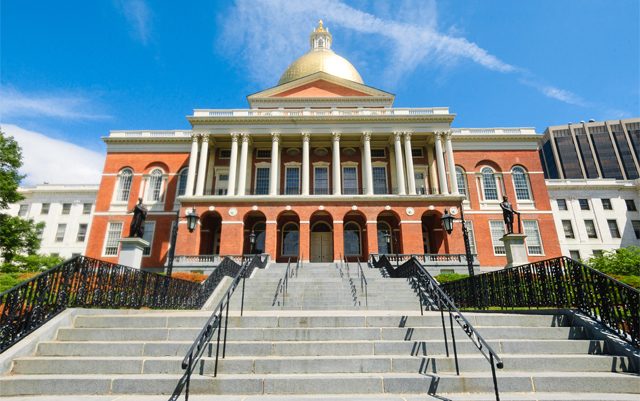There have been a number of delays as Massachusetts lawmakers prepare for the state to bring on the new legal cannabis industry. They have been discussing how they are going to regulate the new industry since the start of the spring legislative session and haven’t gotten much closer to passing a bill – let alone one that doesn’t stomp all over the law passed by voters.
Recently, we saw a bill that looked to restrict advertising in the industry, banning common advertising methods like TV and radio ads, billboards and more (unless the audience is guaranteed to be 70 percent or more adults 21 or older). Now, less than 24 hours before the House was expected to vote on it, a new bill was released that would also significantly increase the taxes on cannabis at different levels. This would effectively make Massachusetts’ taxes on legal cannabis higher than any other state to legalize the plant.
“Mr. Chairman, I would like to say that this proposed bill directly assaults the will of the voters and is a prescription for increasing the illicit market,” Senate Chair Patricia Jehlen said.
The proposed bill would raise the taxes as high as 55 percent – far from the 28 percent represented in the summary provided to the House. It would include a 21 percent tax on growers, 21 percent on manufacturers and 28 percent at point-of-sale in retail shops. Even at 28 percent, the taxes are higher than any other state in the country that has legalized cannabis, with Colorado lowering their taxes from 29 percent to 27 this July, and Oregon dropped theirs from 25 percent to 17 percent last year. Other states seem to tax cannabis between 10 and 25 percent.
One of the biggest problems with taxing cannabis at such a high rate is that it will still be cheaper to buy on the black market – and if you’re not going to get arrested for having it on you, then there is a lot less fear to buy it illegally. By keeping the tax rates so high it will be nearly impossible to entirely wipe out the illegal market. Clearly Colorado and Oregon have realized this and are working to fix the problem by reducing the taxes they charge.
However, Massachusetts lawmakers argue that the current tax rate of 12 percent, which includes cultivation, manufacturing and point-of-sale, is not going to be enough to pay for the costs of regulating the industry. That may not be enough to convince all of the House and Senate to pass this bill though, since at least a handful of them seem to realize that this bill changes far too much.
“They can determine the location, the hours and signage,” said Jim Borghesani (spokesperson for Campaign to Regulate Marijuana Like Alcohol. “But taking away the rights of local constituents and giving it to selectmen or city councils is a bad move.”
Along with the proposed tax changes, it would also allow individual city councils to make the decision as to whether or not cannabis businesses should be banned – a decision that the voter approved law says must be made by voter referendum. Again, cost is the reason for this proposed change, because referendums are expensive. This change would allow any city council to decide to ban the sale and cultivation of cannabis, regardless of whether or not the majority of their communities want such businesses or not.
Since there had not been enough time for many members of the House to read over this bill, the vote on it was delayed until next week. This should give them time to review, and hopefully make significant changes, before they are expected to vote on it. They are supposed to have a bill approved and on the Governor’s desk before the end of June, but at this rate, they may fall even further behind schedule – which does not bode well for getting the industry up and running by summer 2018, an already pushed back deadline.






